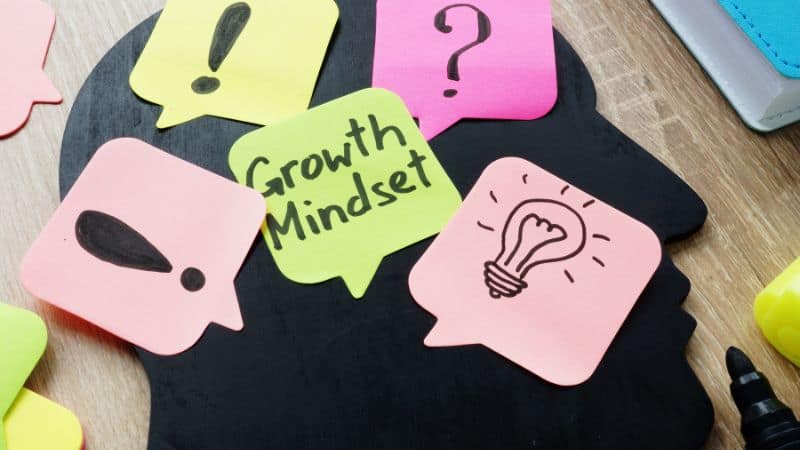Self-improvement and personal growth – you’ve likely heard these terms before. But what do they truly mean for you, especially if you’re a leader?
Think of self-improvement as the tools and tactics you adopt to get better every day. It’s about honing your skills, increasing your knowledge, and bettering your habits. On the other hand, personal growth is the bigger picture. It’s the evolution of your character, how you view challenges, and the mindset shifts you experience over time.
Now, imagine combining both. Together, they shape a powerful journey of bettering oneself, both in the workplace and in life.
What is self-improvement?
Self-improvement refers to the act or process of enhancing one’s knowledge, skills, habits, character, or life experience. It’s about making intentional efforts to better oneself in various aspects of life. This can encompass a wide range of areas, from personal development areas like confidence, mindfulness, and emotional intelligence, to skills and competencies like communication, leadership, or even a new language.

Why is self-improvement important?
Self-improvement promotes continuous learning and growth, ensuring that you don’t stagnate or become complacent in your personal or professional life.
As you achieve new milestones on your self-improvement journey, you’ll feel more confident in your abilities and your self-worth will increase.
Investing in personal and professional development can open doors to new job opportunities, promotions, or even entirely new career paths.
By addressing personal weaknesses or past traumas, you can develop coping mechanisms, resilience, and a more positive outlook on life.
With self-improvement, you’re better equipped with the tools and mindset necessary to tackle life’s obstacles and challenges.
Individuals who prioritize personal growth often contribute positively to their communities and society at large, as they’re more informed, empathetic, and proactive.
In essence, self-improvement is vital because it equips individuals with the tools and mindset they need to lead a fulfilling life, build meaningful relationships, and contribute effectively to society.
Great leadership isn’t an event—it’s a habit. Get actionable leadership habits every Monday and Thursday.
Self Improvement Tips
You will find below 21 self-improvement tips. They are practical, proven, and simple. You can also explore the following self-improvement tips.
Here’s the deal: Self-improvement isn’t just a buzzword. It’s crucial. It paves the way for traits like adaptability, resilience, and visionary thinking – all hallmarks of great leaders.
So, if you’re ready to dive deep, remember this: Embracing self-improvement not only elevates your life but also sets an example.
It sends a clear message about the value of continuous growth and development.

1. Set Clear Goals
Every journey starts with a destination in mind. If you’re striving for progress, you need to know where you’re headed. This means having a clear vision of what you want to achieve, both in the immediate future and down the road.
Setting clear goals acts like a compass. It provides direction and a roadmap, ensuring you don’t drift off course or waste time on detours.
Imagine Lisa, a talented artist brimming with passion and ideas. She dreams of hosting her art exhibit and building connections in the art world.
However, without setting specific, measurable goals, she finds herself taking random art classes, creating inconsistent pieces, and bouncing from one project to another without any clear path. Instead of advancing, she’s simply going in circles.
Don’t let your ambitions float around aimlessly. Ground them in clear, actionable goals. Start today. Define your vision, set your targets, and take the first step toward turning your dreams into reality. Remember, a dream without a goal is just a wish. Make yours count!
Challenge: Grab a pen and paper or open a note on your device. Write down three goals you want to achieve in the next year. Be specific. Instead of saying, “I want to get fit,” try “I want to lose 10 pounds and run a 5k.”

2. Embrace Continuous Learning
In today’s rapidly changing world, what you knew yesterday might not be enough tomorrow. To stay ahead, you need an appetite for knowledge and the habit of continuous learning.
Embracing continuous learning is akin to sharpening your sword. It ensures that you remain relevant, adaptive, and innovative, even as times change. This habit is not just about picking up new skills but also about refining the ones you already possess.
Consider Jake, a seasoned software developer. He’s an expert in a programming language that was popular a decade ago. But as new languages and technologies emerge, his once-coveted expertise starts fading into obsolescence.
If Jake doesn’t commit to learning and adapting, he’ll soon find himself outpaced by younger developers who are fluent in the latest tech.
Challenge: Dedicate 30 minutes daily for the next week to learn something new. It could be reading a chapter of a book, watching an educational video, or taking a short online course. Note down what you’ve learned at the end of each day.
Embracing continuous learning is more than just a personal growth strategy—it’s a survival skill in today’s world. Kickstart your learning journey right now.
Fuel your curiosity, expand your horizons, and ensure that every day, you’re a little more informed than the last. After all, the best investment you can make is in yourself. Dive in and keep learning!

3. Practice Mindfulness
In our bustling lives, with incessant notifications and overwhelming to-do lists, it’s easy to become lost in the cacophony of the present and anxious about the uncertainties of the future. Taking a step back to center oneself can make all the difference. That’s where mindfulness comes in.
Mindfulness is like a mental anchor. By focusing on the present moment and observing it without judgment, you cultivate a state of mind that’s calm, clear, and centered, regardless of external circumstances.
Take the case of Alex, a high-powered executive. On the surface, he seems to have it all: a great job, a loving family, and success by most measures. But internally, he’s constantly anxious, overthinking past decisions and stressing over future challenges. When he discovers mindfulness meditation, it’s transformative.
By dedicating just a few minutes each day to mindfulness practices, Alex begins to find tranquility amidst the storm, making decisions with clarity and navigating challenges with grace.
Challenge: Set aside 5 minutes each day for the next week. Find a quiet space, close your eyes, and focus solely on your breathing. If your mind wanders, gently bring it back to the breath.
Delving into mindfulness can unlock a world of mental peace and clarity. Give yourself the gift of the present moment.
Start your mindfulness journey today and discover the serenity and strength that come from within.
Remember, in the midst of movement and chaos, there’s an oasis of calm waiting for you. All you need to do is tap into it.

4. Foster Positive Relationships
The company you keep has a profound impact on your mindset, behavior, and overall well-being. Surrounding yourself with uplifting and supportive individuals can be the catalyst for both personal and professional growth.
Fostering positive relationships is akin to tending a garden. Just as plants thrive in the right environment, individuals flourish when surrounded by nurturing, understanding, and encouraging companions.
Imagine Maya, a budding entrepreneur. She’s passionate and driven but faces naysayers at every turn, doubting her abilities and discouraging her from pursuing her dreams. When she starts attending networking events and joins a community of like-minded entrepreneurs, her world changes.
The collective encouragement, shared experiences, and constructive feedback propel her forward, turning her dream into a reality.
Challenge: Make it a point this week to reconnect with someone who’s always been supportive or to engage with a new community or group that aligns with your interests and values.
Building and maintaining positive relationships is a cornerstone of a fulfilled life. Take the initiative to nurture these bonds and steer clear of negativity.
Dive deep into communities and friendships that elevate you, and remember that, together, we grow stronger and go farther. Engage, connect, and let positive energies amplify your journey!

5. Cultivate a Growth Mindset
Life is a series of challenges and opportunities. The way you perceive and respond to them makes all the difference. Embracing a growth mindset means viewing challenges as opportunities for development, rather than insurmountable obstacles.
Having a growth mindset is like having a resilient core. It empowers you to bounce back from failures, learn from mistakes, and continuously seek ways to improve. It’s the belief that abilities and intelligence can be developed through dedication and hard work.
Consider Daniel, a young professional who’s faced with a challenging project. While his initial attempts don’t yield the desired results, he doesn’t see this as a dead end. Instead of lamenting his “lack of talent,” he views it as a learning curve, seeks feedback, and iteratively refines his approach.
Over time, what seemed impossible becomes a feather in his cap, all thanks to his growth-oriented perspective.
Challenge: This week, whenever you face a challenge or setback, pause and reframe it. Ask yourself, “What can I learn from this? How can I grow?” instead of resorting to self-doubt or negativity.
A growth mindset is a game-changer. It turns obstacles into stepping stones and mistakes into lessons. Embrace this perspective, and watch as doors of opportunity swing wide open for you.
Never stop believing in your potential to grow, adapt, and shine brighter with each passing day. The sky isn’t the limit; it’s just the beginning!
6. Prioritize Self-Care
In the pursuit of goals and ambitions, it’s easy to neglect oneself. However, prioritizing self-care ensures that you operate at your best, both mentally and physically. After all, you can’t pour from an empty cup.
Self-care is like regular maintenance for a car. Just as vehicles need oil changes, tire rotations, and periodic check-ups to run efficiently, individuals need moments of rest, relaxation, and rejuvenation to function optimally.
Let’s think about Natalie, a dedicated teacher. She works long hours, often taking work home and sacrificing weekends. Over time, the continuous grind wears her down, leading to burnout and a dip in her teaching quality. It’s only when she starts dedicating Sundays to herself—reading, taking long baths, or practicing yoga—that she regains her spark, leading to a happier classroom and a more balanced life.
Challenge: Identify one self-care activity you’ve been neglecting. Dedicate time this week to indulge in it. It could be a simple as a 20-minute walk, journaling, or even just a power nap.
Making self-care a non-negotiable part of your routine is paramount. Remember, looking after yourself isn’t a sign of weakness; it’s a testament to your strength and wisdom. By recharging your batteries, you ensure that you can give your best to everything you undertake. Listen to your body, honor your emotions, and gift yourself moments of tranquility. Your future self will thank you!
7. Step Outside Your Comfort Zone
Growth often happens at the edges of our comfort zones. Sticking to what’s familiar might feel safe, but it rarely leads to breakthroughs or new experiences. Pushing your boundaries, trying new things, and challenging yourself can lead to unexpected discoveries and personal development.
Stepping outside your comfort zone is akin to exploring uncharted territories. While it might be daunting initially, it often uncovers hidden gems, be it new skills, passions, or insights about oneself.
Consider Rohan, an accountant by profession. He’s always had an interest in public speaking but never pursued it due to fear of judgment. On a friend’s encouragement, he joins a local Toastmasters club. The first few speeches are nerve-wracking, but with time and practice, he not only overcomes his fear but discovers a passion and talent he never knew he had.
Challenge: Identify one thing you’ve always wanted to try but held back due to fear or hesitation. Make a commitment to take the first step towards it this week, even if it’s just preliminary research or a beginner’s class.
Breaking free from the cocoon of comfort can lead to transformative experiences. It’s natural to feel apprehensive, but remember, every master was once a beginner. Embrace the unfamiliar, savor the journey, and let each challenge sculpt a bolder, braver version of you. Dive into the unknown; you might just find where you truly belong!
8. Practice Gratitude
In a world that often emphasizes what we lack, taking a moment to acknowledge what we have can be transformative. Gratitude is not just about expressing thanks; it’s about recognizing and appreciating the good, both big and small, in our lives.
Practicing gratitude is like shining a light in the dark. It illuminates the blessings we often overlook, fostering a sense of contentment, positivity, and well-being.
Meet Elena, a city dweller always chasing the next big thing—a promotion, a bigger apartment, the latest gadget. Amidst this chase, she often feels unfulfilled. But when she begins keeping a gratitude journal, noting down three things she’s thankful for each day, a shift occurs. The weight of constant wanting lightens, replaced by a warm sense of appreciation for the present.
Challenge: Before going to bed each night this week, jot down three things you’re grateful for. They don’t have to be monumental. Sometimes, it’s the smallest joys that bring the most warmth.
Embracing gratitude can change the lens through which you view life. By celebrating today’s blessings, you create a positive momentum that attracts even more good into your life. Begin your gratitude journey, and discover the richness that’s already a part of your world. Remember, happiness doesn’t result from what we get, but from what we recognize and appreciate.
9. Develop Resilience
Life is unpredictable, filled with highs and lows. While we cannot control every situation, we can control our response to it. Resilience is the ability to bounce back from setbacks, adapt to change, and keep going in the face of adversity.
Building resilience is like strengthening a muscle. The more challenges you face and overcome, the more robust and adaptable you become.
Think of Sam, who started a small business that faced many hurdles in its initial years—from financial constraints to market competition. Instead of giving up, Sam viewed each challenge as a learning opportunity. With determination, adaptability, and a positive attitude, he weathered the storms, and his business eventually thrived.
Challenge: Reflect on a past setback or challenge you’ve faced. Instead of focusing on the pain or difficulty, identify the lessons it taught you or the strengths you discovered within yourself.
Cultivating resilience isn’t about avoiding struggles but about harnessing the strength to navigate them gracefully. Embrace life’s ebb and flow, knowing that every setback is a setup for a comeback. Equip yourself with the mental fortitude to face life’s storms head-on, understanding that it’s the trials we overcome that truly shape our character. Stand tall, keep pushing forward, and trust that brighter days are on the horizon.
10. Embrace Lifelong Learning
The world around us is ever-evolving, with new innovations, ideas, and perspectives emerging constantly. To stay relevant and continue growing, it’s essential to remain curious and committed to learning, no matter your age or stage in life.
Embracing lifelong learning is like keeping the doors and windows of your mind open. It ensures a constant flow of fresh air—new knowledge and skills—that rejuvenates and keeps the mind agile.
Imagine Tina, a seasoned journalist. While she excelled in traditional reporting, the rise of digital media posed a challenge. Instead of resisting change, Tina enrolled in digital media courses, updated her skills, and soon became a prominent voice in online journalism, merging her foundational knowledge with new-age techniques.
Challenge: Identify an area in your personal or professional life that could benefit from updated knowledge or a new skill. Commit to a course, workshop, or even a book on the topic this month.
11. Seek Feedback and Act on It
Progress often requires an external perspective. While self-reflection is crucial, feedback from others provides invaluable insights into areas of improvement we might be blind to. Constructive criticism, when taken positively, can be a catalyst for tremendous growth.
Seeking feedback is like using a mirror for the soul. It reflects both our strengths and areas where refinement is needed, helping us course-correct and enhance our capabilities.
Consider Alex, a budding chef. He believes his dishes are near perfect until he invites a seasoned chef to taste and critique his creations. The feedback pinpoints certain flavor imbalances and presentation techniques Alex hadn’t considered. By addressing these, not only do his culinary skills improve, but he also gains respect and recognition in his field.
Challenge: This week, approach a trusted colleague, friend, or mentor. Ask them for honest feedback on any aspect of your life or work. Listen actively, without defense, and identify at least one area to act upon.
Being open to feedback is a sign of maturity and dedication to excellence. It allows for continuous improvement and paves the way to mastery. Regularly seek out perspectives, digest them, and make necessary adjustments. By doing so, you propel yourself closer to your best potential, one feedback at a time. Remember, it’s through refinement that both diamonds and individuals shine their brightest.
Adopting a mindset of lifelong learning ensures that you never stagnate. It fuels personal and professional growth, making you more adaptable and versatile in an ever-changing world. Dive into new subjects, refresh old knowledge, and continuously challenge yourself. Remember, growth doesn’t stop when formal education does. Keep exploring, keep questioning, and let the wonders of learning enrich your life journey.
12. Develop Emotional Intelligence
In today’s interconnected world, technical skills alone won’t cut it. Emotional intelligence (EI) – the ability to understand, manage, and effectively express one’s own emotions, as well as effectively interact with others and their emotions – is a cornerstone of successful interpersonal relationships, both in the workplace and in personal life.
Developing emotional intelligence is like fine-tuning an instrument. It’s about being in harmony with oneself and those around, ensuring smoother communication, increased empathy, and effective conflict resolution.
Consider Maya, a team leader in a multinational firm. While she is competent technically, her real strength lies in her high EI. She recognizes when a team member is feeling stressed, knows how to motivate different personalities, and navigates conflicts with ease, ensuring a cohesive and productive team environment.
Challenge: Over the next month, commit to one activity that enhances your emotional intelligence. This could be active listening, practicing empathy in conversations, or even reading a book on EI. Reflect weekly on any changes in your interactions.
Building your emotional intelligence isn’t just about personal growth; it’s about fostering healthier, more meaningful relationships with everyone you encounter. By understanding and managing emotions—both yours and others’—you pave the way for enhanced collaboration, trust, and mutual respect.
Start nurturing your EI today and watch as it becomes a bridge to deeper connections and enhanced personal and professional success.
Remember, true intelligence isn’t just about thinking; it’s also about feeling and connecting.
13. Make Every Minute Count
Time is the one commodity we can’t produce more of. In a world filled with distractions, it’s crucial to ensure every minute is spent intentionally and productively. Making every minute count isn’t about relentless busyness; it’s about purposeful action.
Treating every minute with importance is like valuing each drop in an ocean. Individually, they might seem small, but collectively, they make a vast and powerful entity.
Picture Carlos, a documentary filmmaker. With a project deadline looming, he recognizes the importance of every working minute. He minimizes distractions, plans meticulously, and dedicates blocks of time for specific tasks. He doesn’t just work hard; he works smart. As a result, not only does he finish his project ahead of schedule, but the end product is of superior quality, reflecting his unwavering focus.
Challenge: For the next seven days, keep a time journal. Document how you spend each hour. At the end of the week, review it to identify time-wasters and moments of inefficiency. Adjust your schedule for the following week based on your observations.
By committing to make every minute count, you’re taking a stand for your goals, dreams, and priorities. It’s about recognizing the value of time and ensuring it aligns with what truly matters. Harness each moment, eliminate the trivial, and focus on the impactful. Remember, life isn’t about the number of breaths we take but the moments that take our breath away. Ensure every minute contributes to creating those breathtaking memories and achievements.
14. Make Your Own Luck
The notion of luck often evokes images of chance encounters, serendipitous events, or unexpected windfalls. However, those who consistently find themselves “lucky” often have a proactive approach towards life. Instead of waiting for the stars to align, they align themselves with potential opportunities. Making your own luck is about being prepared, staying open, and creating opportunities when none seem evident.
Seeing luck as a product of effort and readiness is like planting a garden. While nature (or chance) plays its role, the gardener ensures the soil is fertile, plants are nourished, and unwanted weeds are kept at bay. The outcome, a thriving garden, is thus both a product of effort and favorable conditions.
Consider James, an aspiring musician. While many wait for a big break, James consistently uploads his music online, networks with industry professionals, and continually hones his craft. One day, a music producer stumbles upon his work online. To an outsider, James’ subsequent success might seem like overnight luck. In reality, it’s the product of persistent effort and preparedness meeting an opportunity.
Challenge: Identify an area in your life where you’re waiting for an “opportunity” or a “lucky break.” Over the next month, take proactive steps to either find or create opportunities in that arena. Whether it’s acquiring a new skill, reaching out to a potential mentor, or starting a side project, take initiative.
Making your own luck is about reshaping the narrative from passive waiting to active preparation. It’s recognizing that while we can’t control every outcome, we can certainly influence the likelihood of favorable results. Be ready, stay persistent, and embrace opportunities, both seen and unseen. Remember, luck isn’t just something that happens to you; often, it’s something you make for yourself through dedication, awareness, and action.
15. Master Impromptu Speaking
The ability to speak eloquently without prior preparation is a powerful skill. Whether you’re called upon to share your thoughts in a meeting, address an unexpected audience, or handle a sudden question, mastering impromptu speaking can make you stand out, showcasing confidence, quick thinking, and adaptability.
Seeing impromptu speaking as an art form is akin to a jazz musician improvising on stage. They might not have a predetermined note sequence, but their expertise, practice, and intuition guide them to produce harmonious melodies.
Reflect on the story of Aria, a mid-level manager. During a company-wide seminar, the keynote speaker had a last-minute emergency. Recognizing Aria’s expertise in the subject, her superiors asked her to step in. With no slides and minimal preparation, Aria relied on her knowledge, genuine passion for the topic, and impromptu speaking skills. Her spontaneous presentation was met with praise, showcasing her as a knowledgeable and adaptable leader.
Challenge: Over the next two weeks, practice impromptu speaking. Start with simple topics you’re familiar with. Set a timer for two minutes and talk without any preparation. Gradually, introduce unfamiliar or challenging subjects. You can also ask friends or family members to throw random topics at you to keep you on your toes.
Mastering impromptu speaking doesn’t just enhance your public speaking abilities; it strengthens your confidence and sharpens your thinking on the fly.
It equips you to handle unforeseen situations with poise and eloquence. Dive into the world of spontaneous expression, embrace the unpredictability, and hone your craft.
Remember, true mastery isn’t just about prepared speeches but also thriving in the unplanned moments. Make them your forte!
16. Give 10x More
In a world driven by transactions and the principle of equivalent exchange, there’s an unparalleled power in giving more than what’s expected. By adopting a mindset of generosity, where you seek to provide immense value in every interaction, you not only elevate yourself but also uplift those around you.
Treating life with a “give 10x more” approach is akin to being a bountiful tree in a garden. While other plants might give fruit proportionate to the care they receive, this tree provides an abundance, benefiting not just itself, but the entire ecosystem around it.
Reflect on Samuel, an entrepreneur. Instead of just delivering what’s promised to his clients, he goes above and beyond. He offers additional insights, supports them in ancillary areas, and often provides more than what’s outlined in contracts. The result? Loyal clients, countless referrals, and an impeccable reputation in the industry.
Challenge: Over the next month, identify three areas or relationships in your life where you can give 10x more. It could be at work, in your personal relationships, or even casual interactions. Make a conscious effort to provide more value, be it through time, effort, or resources.
By choosing to give 10x more, you’re not just being generous; you’re making a statement about the kind of individual or entity you are. It’s a commitment to excellence, a promise of reliability, and a display of altruism. As you pour immense value into the world, the universe often reciprocates in kind. Remember, the more you give, the more you inspire, and ultimately, the more you grow. Embrace the abundance mindset and watch as the world transforms around you.
17. Have a Beginner’s Mind
Imagine looking at the world through the eyes of a child: everything is new, exciting, and full of possibilities. This approach is what’s often referred to as having a “beginner’s mind.” It’s about viewing life with curiosity, openness, and a lack of preconceptions, much like a beginner or a novice.
Thinking you’ve seen it all can trap you in a box. It’s like looking at a vast ocean but only seeing the surface. On the other hand, believing there’s always more beneath the surface, waiting to be discovered, keeps your journey of learning and exploration alive.
Let’s consider Alex, a seasoned software developer. While he’s an expert in his field, he approaches each project as if it’s his first, asking basic questions and exploring different angles. This mindset often leads him to find unique solutions that even newcomers to the field hadn’t considered.
Challenge: For the next week, pick an activity or topic you believe you’re well-versed in. Approach it with a beginner’s mind. Ask simple questions, explore the basics, and see if you can discover something new or gain a fresh perspective.
Adopting a beginner’s mind doesn’t mean discarding your knowledge. Instead, it’s about blending your expertise with curiosity. It allows you to break free from limitations and truly innovate. Remember, every master was once a beginner, and continuous growth often comes from embracing that starting point, no matter where you are in your journey. Stay curious, stay open, and let the world surprise you!
18. Travel Often
I’ve always had a passion for traveling. While many see vacations as a time to simply unwind, my experiences on the road have always been about so much more than relaxation. In fact, for me, traveling has seldom been relaxing in the traditional sense.
So, what’s the link between traveling and self-improvement?
Every journey I embark upon offers a treasure trove of experiences. The joy of witnessing new landscapes, mingling with different cultures, and understanding diverse lifestyles has been enriching. More than just sightseeing, these adventures gift me fresh perspectives on life and a broader understanding of the world. It’s one thing to read about the Eiffel Tower or the Great Wall of China in a book, but standing in front of them, feeling their historical weight, and soaking in their stories firsthand? That’s a different ball game altogether.
My passion for traveling has even influenced my career choices. Becoming a professional speaker wasn’t just about addressing audiences; it was a ticket to see the world in all its glory. Initially, I didn’t have the resources for frequent globetrotting. However, my profession now lets me combine my love for travel with my mission to inspire and help others. Clients not only bear my travel and stay expenses but also value and remunerate my speaking engagements.
Challenge: Even if you don’t have plans to become a global speaker like me, find your own unique way to travel more. It could be as simple as exploring a new town nearby or saving up for that dream international trip. Whenever and wherever you go, travel with an open heart and a keen eye. Seek more than just relaxation; search for learning, understanding, and growth.
Remember, each trip is more than just a journey to a destination. It’s a step towards self-discovery, broadening horizons, and enriching the soul. Travel often, learn constantly, and let the world be your classroom.
19. Write Every Day
My writing journey began in high school, spurred by William Zinsser’s “On Writing Well.” That book was more than just a guide—it was an invitation. An invitation to introspect, to clarify my thoughts, and to give a voice to the myriad ideas bubbling inside. This led me to embrace the daily ritual of penning down my thoughts.
While once I scribbled in journals, today’s digital age has me tapping away on platforms like Evernote. And sometimes, I dive straight into Grammarly, much like how I’m drafting this. Investing in a premium account has been invaluable. Each suggestion it offers feels like a collaborative discussion, nudging me towards greater clarity and precision in my writing.
For those seeking a structured approach to everyday writing, I’d recommend checking out 750words.com. It’s an excellent platform to develop and maintain the writing habit.
But why write daily? For me, writing isn’t just about producing content—it’s a lens. A lens to observe, dissect, and understand my thought processes. It’s a mirror reflecting the intricacies of my mind, helping me find clarity, structure, and confidence in my beliefs and ideas.
Challenge: If you haven’t yet, start today. It doesn’t have to be a masterpiece or a long essay. Simply jot down your thoughts, feelings, or even mundane daily occurrences. Over time, you’ll see the transformation—not just in your writing, but in your thinking.
Remember, writing is more than an activity. It’s a journey of discovery, introspection, and growth. It’s a dialogue with oneself. Engage in this dialogue daily, and uncover the profound depths of your mind. Embrace writing as a tool, a friend, and a guide in your journey of self-improvement.
20. Live Debt-Free
Debt, a word that’s become all too familiar and somewhat dreaded in today’s consumerist society. My perspective on debt transformed after diving into the pages of the “4 Laws of Debt-Free Prosperity.” If you’re looking to reshape your relationship with money, I can’t recommend this read enough.
In the circles of the affluent, debt often carries a different connotation. They view it as leveraging “other people’s money” to grow their wealth. But let’s be clear, this strategic form of debt is different from the overwhelming kind many face—the kind that feels like a never-ending cycle of interest payments, stripping hard-earned income month after month.
For a lot of Filipinos, and indeed many around the world, debt signifies perpetual scarcity. No matter how much they earn, a slice is perpetually reserved for paying off interests. It becomes an unyielding shackle, forcing many to toil just to stay afloat. The dark shadow of loan sharks looms large, preying on those caught in moments of desperation.
Imagine a life where your earnings are entirely yours, where you’re not constantly running on a financial treadmill, forever trying to catch up. That’s the promise of living debt-free.
Challenge: Make it a priority to chart a course towards a debt-free life. It’s not just a financial goal; it’s a personal development milestone. Begin with the insights from the book I mentioned. Its step-by-step guide offers a clear pathway to shed the chains of debt.
The journey towards a debt-free life isn’t just about money; it’s about freedom—freedom from worry, from the constant strain, and from the limitations debt imposes. Remember, financial independence isn’t about how much you earn but about how wisely you manage it. Aim for a life where your financial decisions empower you, not encumber you. Make the choice to live liberated, unburdened, and truly prosperous.
21. Focus on One Thing
There’s power in singularity. Often, in the cacophony of tasks and responsibilities, we lose sight of what truly matters. Yet, within the myriad of choices lies ‘The One Thing’—that pivotal action which, once accomplished, streamlines all other tasks, or even renders them unnecessary.
It’s a familiar sight: talented individuals, brimming with potential, stretching themselves thin across numerous activities. Perhaps you resonate with this too.
But here’s a lesson I’ve taken to heart from Vilfredo Pareto: You don’t have to juggle countless tasks. Embracing the 80/20 principle, it becomes evident that focusing on the singular, most crucial task can often yield optimum results.
Self-improvement, undeniably, is a journey that spans a lifetime. Yet, the unpredictability of life underscores the importance of seizing the present. Waiting for a nebulous “later” to commence improvement is a folly. Every tick of the clock is an invaluable moment, urging us to strive for betterment now, today.
Challenge: As you map out tomorrow, ask yourself: What’s the one pivotal action that, if tackled, will make everything else fall into place or become simpler? Identify it. Prioritize it. Dive deep into it. In doing so, you’ll find yourself not just progressing, but thriving, each and every day.
Life is a mosaic of experiences and choices. By honing in on ‘The One Thing’, you ensure that each tile, each decision, is purposeful and rewarding. Let your journey of self-improvement be driven by focus, intention, and joy.
Wrapping Up
We’ve explored many self-improvement tips together. Your journey to better yourself has just started, and I’m thrilled you’ve taken this step.
Share Your Thoughts! Did any tip stand out to you? Let’s discuss it below. And if you found value in this, pass it on. Share this article with friends and coworkers—they might benefit too!
Looking for More? There are more articles like this below. Dive in and keep learning.
Bring Us to Your Organization! Our self-development workshops can make a big difference in your team’s growth. Think about introducing them to your workplace.
In a fast-paced world, personal growth remains crucial. Use the tools and insights you’ve gained here and make each day count.
Keep growing, sharing, and exploring. Your journey matters.
